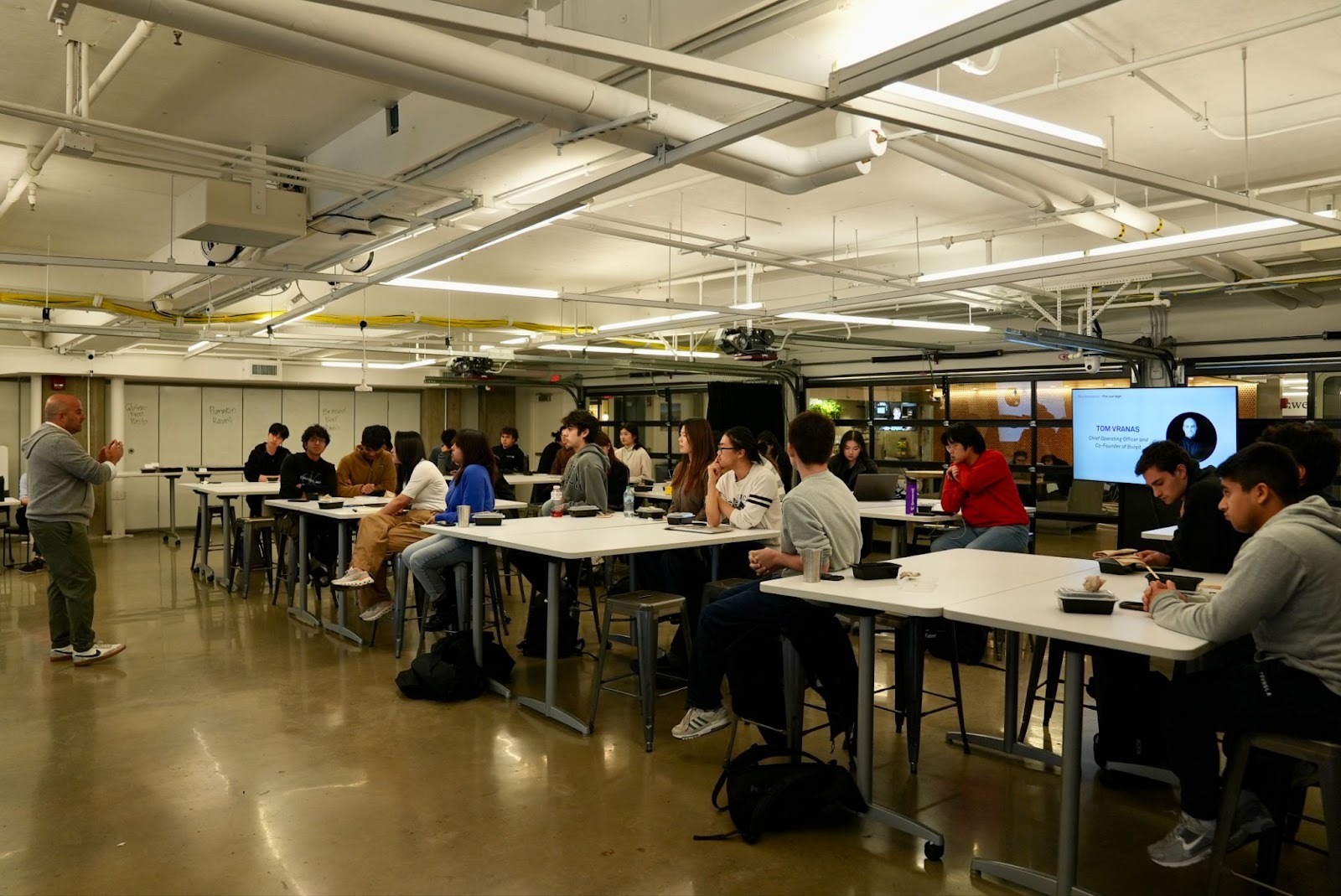Northwestern alum Tom Vranas ‘03 looked out at a packed room of founders at The Garage’s Family Dinner on Tuesday and offered a one-liner that set the tone for the night: “The two best things I can tell you: Don’t grow up and don’t buy a house, because both of these things are very painful.”
As students chuckled, Vranas used the laugh to pivot to his current chapter as Founder and Chief Operating Officer of Bulqit, a tool that can help with the second of these grievances by grouping outdoor home services such as lawn care or pest control by neighborhood, helping homeowners save money.
Bulqit marks startup number seven in Vranas’ career as a serial entrepreneur. Throughout these ventures, Vranas clarified that before being able to flaunt a glossy story of growth, entrepreneurship runs on grit.
“We walked in 100 degree heat for 10 hours a day, knocking on doors,” Vranas said of his time pitching door-to-door to homeowners for Bulqit. “Most of the folks didn’t want to talk to us, didn’t want to hear the pitch. So we had probably 2,800 doors that were closed on us. That is not for everyone.”
For Vranas, that stamina was forged, in part, at Northwestern. As an undergrad studying Economics and Russian Literature, Vranas and a dorm-mate at Allison Hall built one of the earliest mesh wireless networks for apartment buildings in Chicago.
But unlike today, where Northwestern comes clad with dedicated spaces for entrepreneurship such as The Garage, Vranas faced some pushback for his ambition.
“Northwestern wasn’t so happy about people doing incubation and innovation. In fact, my co-founder dropped out of Northwestern and I became a part-time student. We both got called to the Dean’s Office and were reprimanded for not taking the full course load. So this space,” Vranas said, motioning to the room around him at The Garage, “use it, because it’s an incredible space.”
Prior to Bulqit, Vranas worked across multiple industries, including private equity, education, and executive coaching. Vranas spent more than a decade building education ventures, such as one that scaled after-school tutoring at The Princeton Review and another that created executive leadership programs for school district superintendents. Vranas recalled a lot of “scars” from working within education and fighting the status quo.
That work, he said, “is like running into a brick wall as hard as you can, as fast as you can every single day.”
Vranas later pivoted to other ventures, including his eventual path at Bulqit. Part of Vranas’ playbook and what has kept him agile and adaptable all these years is his commitment to building a strong network.
In a similar vein, Vranas advised Residents to cultivate mentors with old-fashioned follow-through: sending mentors handwritten notes.

“It will shock you,” Vranas told Residents. “People will respond so hardcore to [a handwritten note]. I go and open my mail. Guess what it is? It’s bills, it’s ads, it’s stupid home services companies trying to sell me on this platform,” Vranas said with a smile, a subtle nod to his own company.
“But it’s not usually a card where someone says, ‘Hey, that talk was really great,’ or ‘Hey, I really want to learn more.’’
When a student asked Vranas what his time at Northwestern gave him, Vranas said he learned “how to think” more than any single class could have taught him.
As the conversation wound down, Vranas shifted from stories of failure and persistence to what those lessons meant for the students in the Residency program listening.
“The amount of loss that you can experience when you're 20 has nothing to do with the amount of loss that you have when you’re 30 or 40,” Vranas said. “This is a really beautiful, sacred time where you should meet interesting people, try different things, take different classes, and take some risks.”